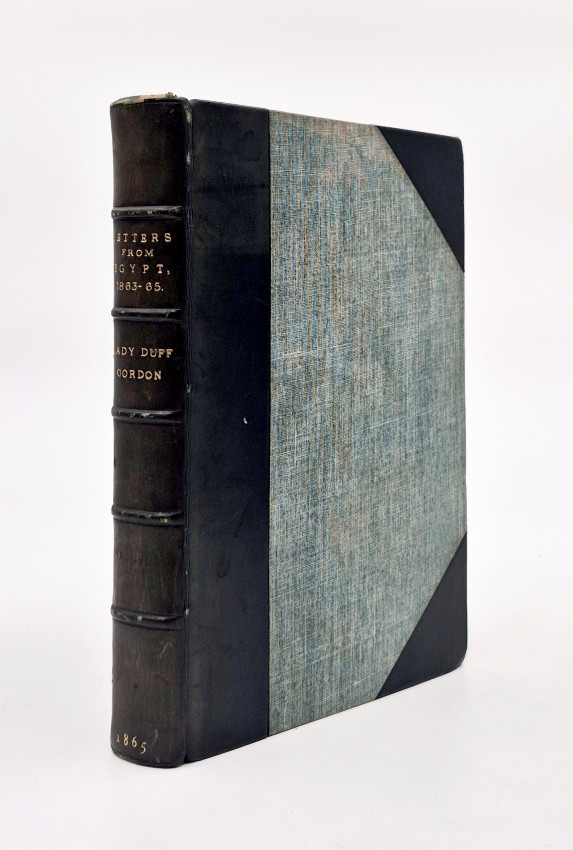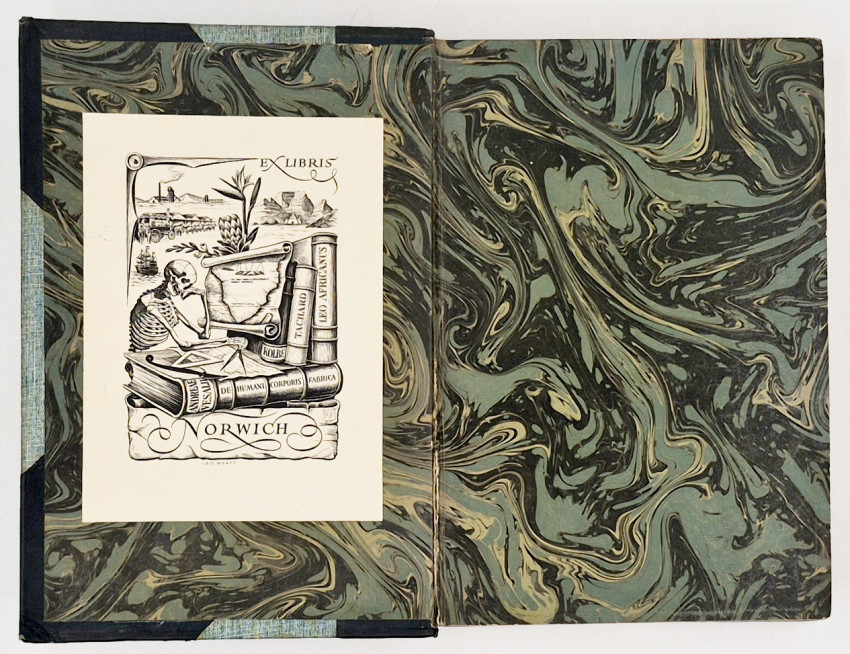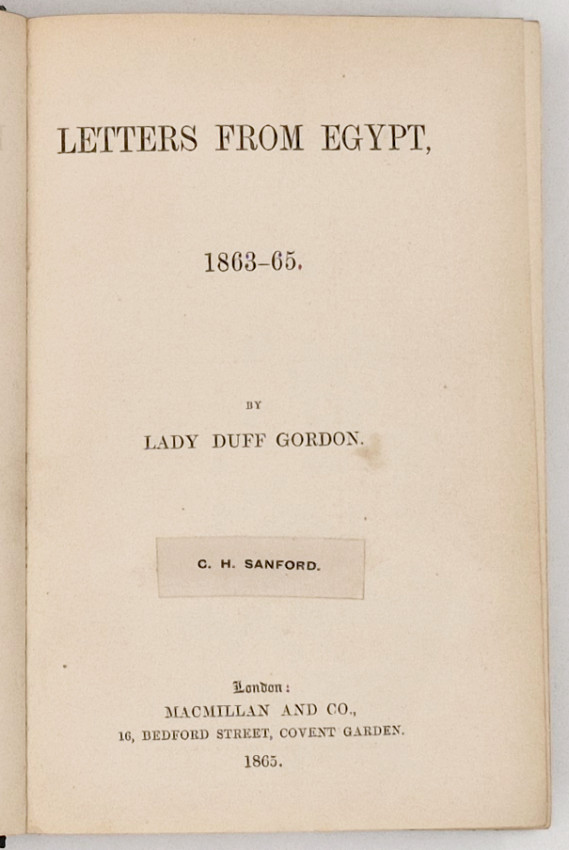First Edition: xii, 371 pages, half dark green calf with light green cloth sides, marbled endpapers with a bookplate on the front paste-down, top edge gilt, a very good copy.
Oxford Dictionary of National Biography (https://doi.org/10.1093/ref:odnb/8175) 'Gordon, Lucie Duff [née Lucie Austin], Lady Duff Gordon (1821–1869), travel writer and translator, was born on 24 June 1821 at 1 Queen Square, Westminster, London.
‘Lucie Duff Gordon established a reputation for translation, starting with Wilhelm Meinhold's Mary Schweidler, the Amber Witch (1844), which she believed to be a seventeenth-century chronicle, not initially knowing it was a literary hoax. Her translation nevertheless went through three editions in 1844, and was considered superior to the original. She next was attracted to accounts of travel in the Middle East, translating The Prisoners of Abdel-Kader by M. de France (François Antoine Alby) and The Soldier of the Foreign Legion by Clemens Lamping. She also translated and condensed Paul Feuerbach's Narratives of Remarkable Criminal Trials (1846).
'In 1851 Lucie Duff Gordon contracted tuberculosis and was forced to leave her family in search of a climate suited to her health. First she went to South Africa, and her letters home were published as Letters from the Cape (1864). In 1862, at the age of forty-one, she sailed to Egypt, where for seven years she lived in Luxor in a house built over the ruins of a temple. She wrote movingly of Egyptian village life and harshly of westernization. She was particularly critical of Viceroy Isma'il Pasha at a time when he was seen as a progressive reformer. While the British applauded such ‘reforms’ as the building of the Suez Canal and railroads by the pasha, Lucie Duff Gordon noted the devastation brought to village life by forced labour and high taxes, necessary to support the projects.
'Her emphasis on common human experiences in her writing avoided stereotypes. She valued the Egyptians, 'so full of tender and affectionate feelings', and took her countrymen to task for their distrust of her neighbours, asking 'Why do the English talk of the beautiful sentiment of the Bible and pretend to feel it so much, and when they come and see the same life before them, they ridicule it' While her letters prophetically warned of the frustrations of the Egyptian people, they were ignored. Some of her harsher criticisms of government policy were removed in the early editions of her popular Letters from Egypt, 1863–1865 (1865) and Last Letters from Egypt (1875). While her health did improve in the dry heat of Luxor, she was only able to visit England twice. Finally succumbing to her long illness, she died in Cairo on 14 July 1869 and was buried in the city's English cemetery.'
- Overall Condition: Very good
- Size: 8vo (180 x 125 mm)
- Sold By: Clarke's Africana & Rare Books
- Contact Person: Paul Mills
- Country: South Africa
- Email: [email protected]
- Telephone: 021 794 0600
- Preferred Payment Methods: Visa & Mastercard via PayGate secure links and Bank transfers.
- Trade Associations: ABA - ILAB, SABDA
















